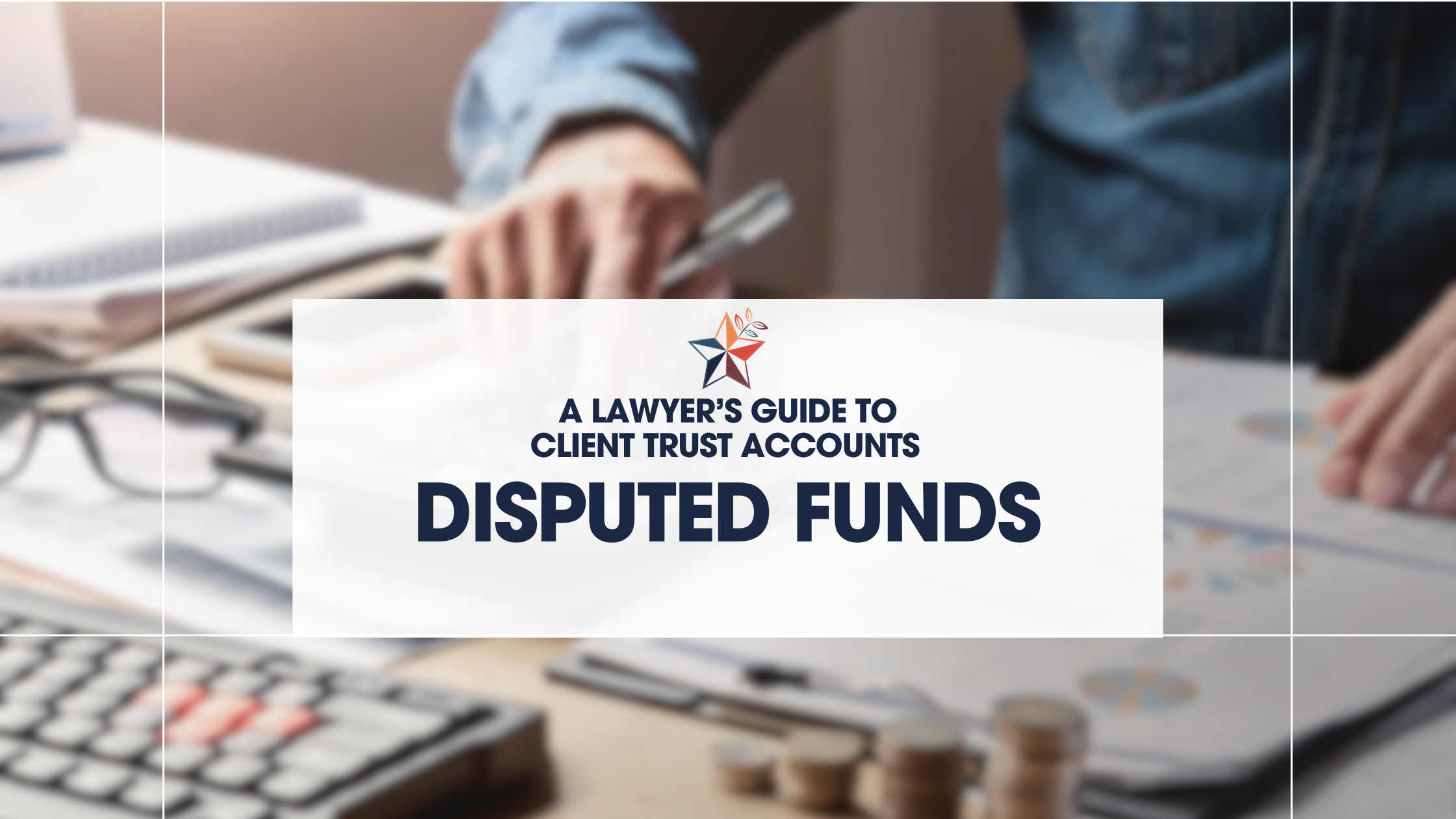Disputed Funds | Lawyer's Guide to Client Trust Accounts
Published on February 20, 2024 Starting a Practice Maintaining a Practice Growing a Practice

If ownership is clear or undisputed, a lawyer must pay the funds to the person entitled to receive them.[69] However, if ownership is unclear or a dispute among claimants exists, a lawyer pays at his own peril.[70]
In such cases, the lawyer must disburse any undisputed portions and keep the remaining funds in trust until ownership is clarified or the dispute is resolved.[71] A lawyer should not assume a decision-making role in the case of a dispute, whether the dispute exists between the client and a third party or between the client and the
lawyer.[72] If the dispute among claimants cannot ultimately be resolved, the lawyer should submit the issue of ownership to a court for resolution.
When a third person pays the fee deposit to the lawyer on behalf of a client and a refund or return of fees must be made, a dispute can arise between the client and the third party regarding who is entitled to the funds. The third person will often seek return of those funds, while the client claims the funds are a gift from the third party. Who does the lawyer have a responsibility to return the fees to, the client or third party?
This issue of ownership is a question of substantive law and is not determined by the disciplinary rules. However, a lawyer receiving funds in this fashion can attempt to avoid future controversy by making it clear in his initial agreement with the client and third person who will receive the funds if a refund is appropriate.
To avoid the improper withdrawal or payment of disputed funds from the trust account, a lawyer should let the client know in advance when funds will be transferred so that the client may dispute charges or object to payments before any transfer is made.[73] The lawyer needs to give the client a reasonable time to object to the invoice and any disputed funds need to remain in the trust account according to Rule 1.14 (c) and comment 3.
(See Appendix 8 for Wilson v. Comm’n for Lawyer Discipline
and Appendix 9 for Ethics Opinion 625.)
69 See generally Wilson.
70 See id.
71 See id.; Tex. Disciplinary R. Prof’l Conduct 1.14 (c); Fry, 979 S.W.2d at 335; Wade, 961 S.W.2d at 375. See also Butler v. Comm’n for Lawyer Discipline, 928 S.W.2d 659, 662-63 (Tex. App.—Corpus Christi-Edinburg 1996, no writ); Tex. Comm. on Prof’l Ethics, Op. 580, 71 Tex. B.J. 586 (2008); Tex. Comm. on Prof’l Ethics, Op. 582, 71 Tex. B.J. 760 (2008).
72 Supra note 63.)
73 Tex. Disciplinary R. Prof’l Conduct 1.14 (b). See also Tex. Disciplinary R. Prof’l Conduct 1.04 (c).
Updated January 2024
-1.png)
Law Practice Management Committee
The Law Practice Management committee is comprised of experienced lawyers from across Texas who have been appointed by the State Bar President.